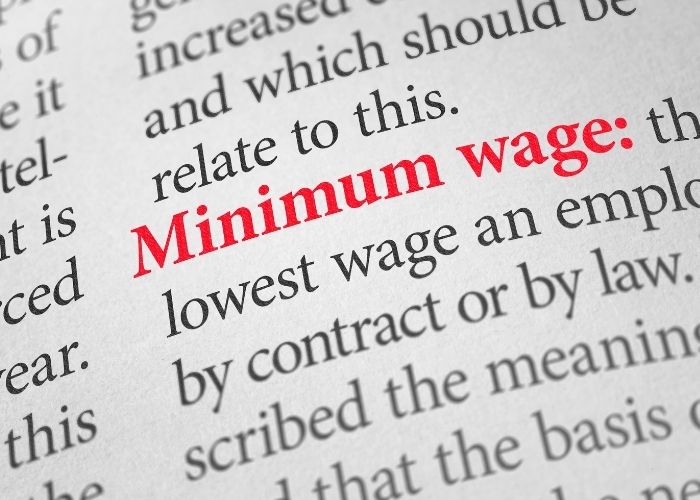MADRID – After the minimum wage (SMI) was increased by €15 euros in September, the Spanish government is going to implement another increase, this time from €35. This brings the minimum wage to an amount of €1000 gross per month.
Initially, it seemed that the Ministry of Employment wanted to increase the SMI by €31 to €996 per month. However, this eventually became €35. This is an important difference because it meets the union´s demands for an increase to €1000. Furthermore, this amount will be paid out 14 times a year, with retroactive effect from 1 January. Therefore, giving employees with an SMI an annual gross income of €14,000.
Employees and employers’ organisations have been given until Wednesday to discuss the proposed salary increase internally. It will be announced on Wednesday at 5.00 pm whether all parties agree with the ministry’s proposal.
Satisfied
The two largest trade unions in Spain, CCOO and UGT, put a clear demand on the table during the negotiations: the SMI must be increased to €1000. Minister Díaz of Employment has said that she is satisfied she has been able to meet this requirement. This is despite the fact she also had to take into account the interests of the employers’ organisations.
However, the demand by Secretary-General Pepe Álvarez of the UGT that the proposal would be discussed in the Council of Ministers this Wednesday has been rejected. Next Wednesday, the Council of Ministers will decide whether it will reach an agreement between the government and the unions. In the agreement reached in September for an increase of €15, the unions stipulated there would be another increase from 1 January 2022. And, furthermore, this would bring the monthly amount to four digits. At that time, Minister Díaz already promised to meet this condition.
60% of average income
In those negotiations, the Spanish government, employers’ and workers’ organisations agreed to a “progressive review” of the SMI in 2022 and 2023. This means that the SMI will eventually reach 60% of the average salary, before the end of this reign. This fulfills the requirements of the European Social Charter and fulfills an earlier promise made by the coalition.
Bad for employment?
Even without the agreement of the employers’ organisations, if the Council of Ministers has given the green light, the increase in the SMI with retroactive effect will be a fact. President Antonio Garamendi of the business association CEOE has said he is not in favour of the proposed increase. He said it would have adverse effects on employment. Smaller companies in particular have not yet recovered from the crisis and cannot afford this wage increase. Garamendi emphasises that in the past three years, the SMI has already increased by 30%. And, also 8 of the 17 autonomous regions have an SMI of more than 60% of the average income.
However, the advisory committee that advises the Ministry of Employment on the SMI has recommended that this minimum wage be raised to €1,049 until 2023. Minister Díaz has always said that she will abide by the advisory reports issued by this committee.
Related post: Mercadona sets minimum wage at €1425


